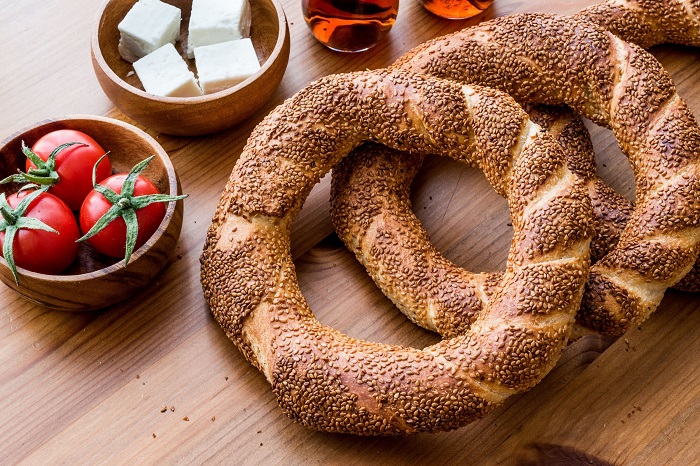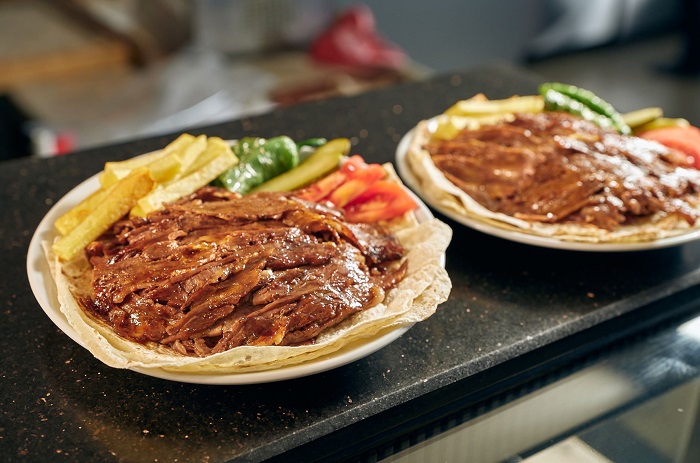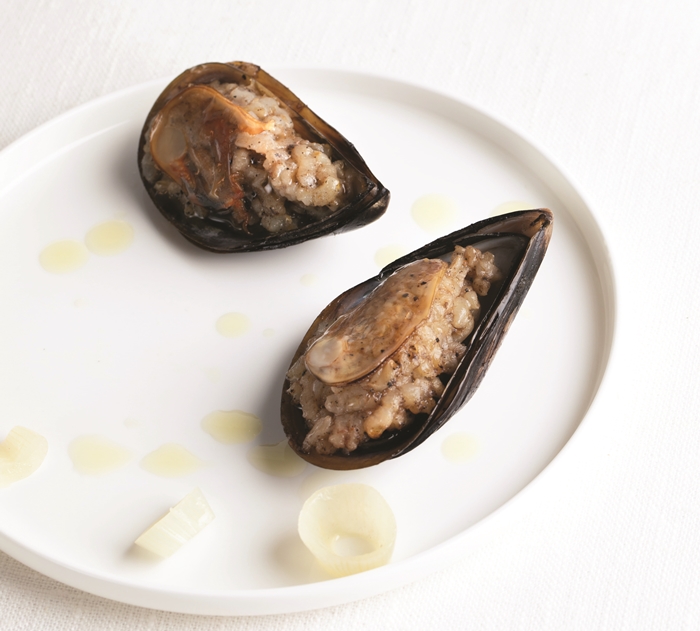Turkish cuisine is praised internationally, from Michelin-starred restaurants to regional dishes, and Istanbul is unquestionably at the heart of this illustrious gourmet history. As a result, a trip to Istanbul – a city famed for its rich history and current attractions – would only be complete with enjoying the city’s distinct flavours. Still, İstanbul’s street food culture is another chapter to explore. There is much to uncover, with each region giving a unique taste story. It’s time to discover another aspect of Istanbul through the city’s street food.
From Breakfast to Dinner…
The “simit”, a staple of the world-famous Turkish breakfast, is possibly Istanbul’s most popular and omnipresent street snack. The classic simit is a ring-shaped bread covered with sesame seeds about 15 cm (6 inches) in diameter, crunchy on the exterior and supple and chewy on the inside. This Istanbul classic, sold at snack bars on ferries and by street vendors from gorgeous carts, is full enough to satisfy hunger without destroying your appetite. A simit with cheese makes a delicious breakfast with a hot glass of Turkish tea in the morning. This snack pairs well with “Ayran”, a cool yoghurt drink, in the afternoon.
“Döner” is famous far beyond the country’s borders. “Döner”, which means ‘rotated’, refers to the cooking style of the seasoned, thinly sliced beef, lamb, or chicken grilled on a vertical spit. While upscale versions of the dish can feature the caramelised meat slices atop a bed of rice, in İstanbul, the street version usually comes wrapped in a thin flatbread or stuffed into a bread roll with lettuce, tomatoes and perhaps a sauce.
“Kokoreç”, one of the most distinctive Turkish dishes, is extremely popular in the country, particularly as a late-night snack. “Kokoreç” is made by grilling well-cleaned sheep intestines over a fire and mixing in spices such as black pepper, chilli flakes, thyme, and salt. It is generally eaten as a sandwich, served in a thick roll. The “kokoreç” mixture can also include finely chopped and cooked tomatoes and peppers.
Another indispensable street flavour in İstanbul is the stuffed mussels or the “midye dolma”. Sold on nearly every corner in İstanbul, this delectable snack consists of mussels, rice, onion, salt and spices in a mussel shell. It is usually eaten by hand after squeezing lemon juice over the rice and mussel mixture. “Midye dolma” vendors can be found throughout İstanbul, selling their wares from a portable tray, particularly in the Taksim, Beşiktaş and Kadıköy neighbourhoods. Like potato chips, it’s almost impossible to eat just one.
Roasted chestnuts are another wonderful flavour to sample in İstanbul, especially during winter. As soon as it gets chilly, mobile carts selling chestnuts roasted in hot embers begin to appear throughout the city. While the seller packs your fragrant chestnuts in a paper bag, you can warm your hands over the fire. Purveyors of roasted chestnuts are found in many of the city’s most prominent pedestrian streets, including İstiklal, Bağdat and Bahariye.
Fresh from the sea
A discussion of İstanbul street fare will almost always turn to “balık-ekmek” (fish and bread). Prepared with grilled fish and served with onions and greens in a crunchy bread roll, these fish sandwiches are an unforgettable treat. As nutritious, healthy and affordable as they are filling, fish sandwiches are a favourite of both İstanbulites and tourists. “Balık-ekmek” is incredibly tempting in seaside neighbourhoods like Karaköy and Eminönü, where you can enjoy your sandwich with a view of the Bosphorus and the Marmara Sea.
And what could be nicer than a baked potato with butter and cheddar cheese? “Kumpir” does not disappoint! Enormous potatoes are baked, and their insides are mixed with cheddar cheese, salt, and butter. Various toppings, such as salads, sausages, and other garnishes, are added to this delicious mixture. Connoisseurs of the dish claim that the best purveyors are in the Ortaköy neighbourhood, where multiple “kumpir” stalls are lined up near the Bosphorus shore. ///nCa, 21 December 2023 (in cooperation with Embassy of Türkiye to Turkmenistan)




